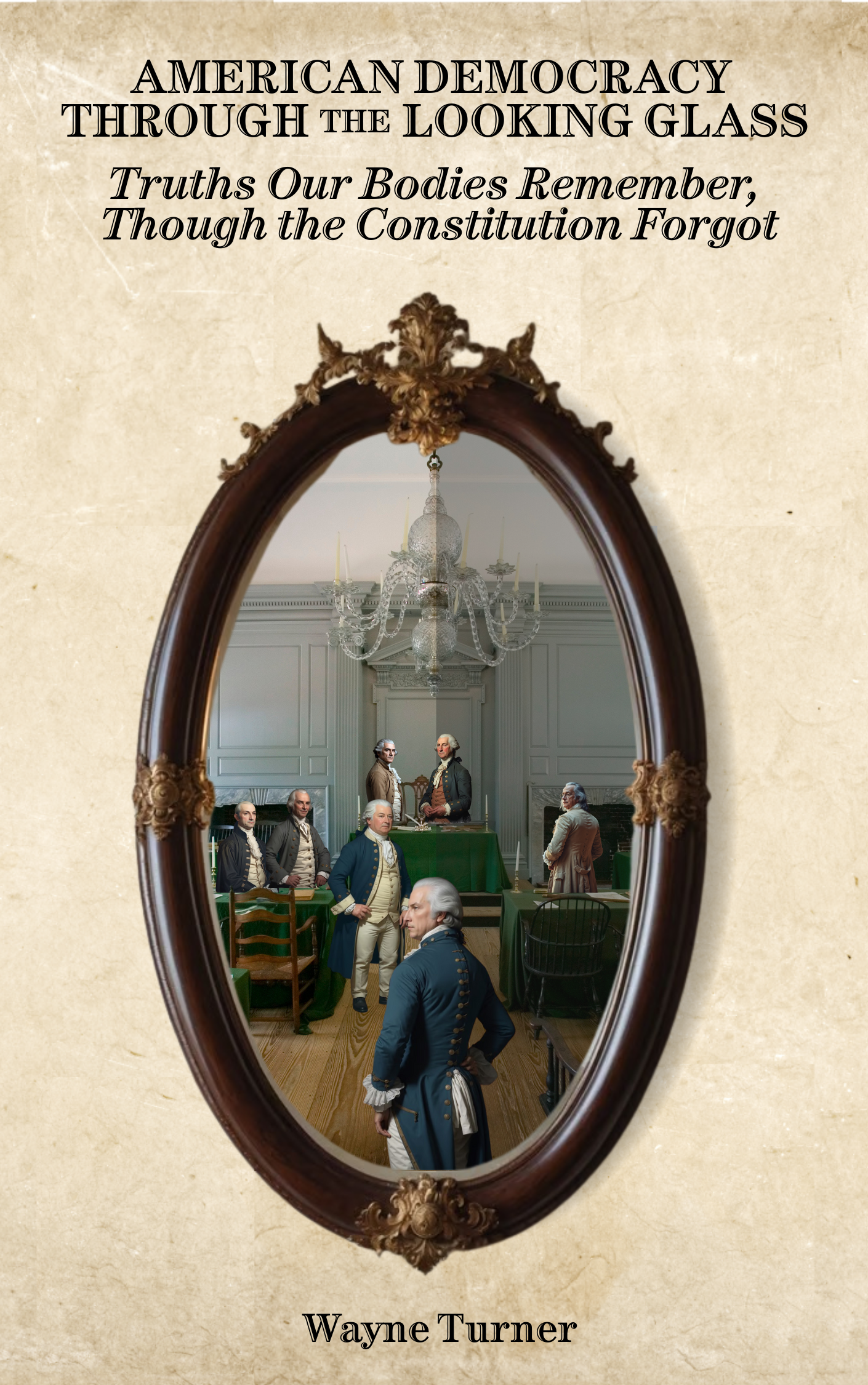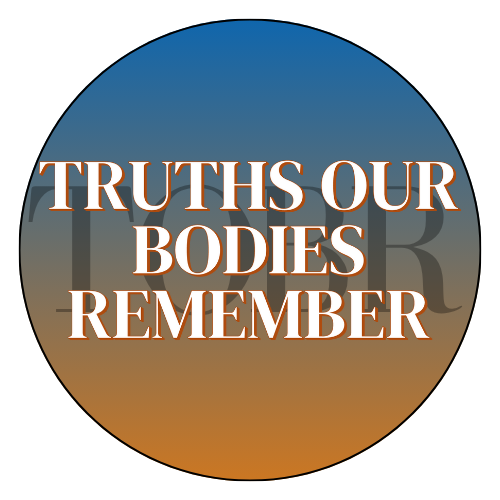American Democracy Through the Looking Glass - Preface Reveal

Hi everyone, I hope this post finds you well.
I’m on track to send my book to a professional editor on August 20, and I’d like to share a first real glimpse of it with you. Are you ready to see some actual content from American Democracy Through the Looking Glass: Truths Our Bodies Remember Though the Constitution Forgot?
The Preface, or Author’s Note, is now final. I hope you find it as thought‑provoking to read as it was for me to write.
Preface
This book explores the origins of continuing civil and wealth inequality in the earliest formative days of the American republic. It attempts to reveal the reasons why such inequalities exist in a country founded on democratic principles enshrined in our two most sacrosanct founding documents, The Declaration of Independence and the Constitution.
As a white male author, I am clear-eyed in acknowledging that the subtitle phrase “our bodies” does not include my own in the same way it does for the women, the enslaved, the Indigenous, and the dispossessed whose histories, traumas, and truths inform this work. My intent is not to claim their experiences nor to presume full understanding of what it means to live in bodies marked by centuries of exclusion, exploitation, and erasure. I write from a position of empathy, and responsibility, to interrogate and describe the systems that silenced them, profited from their suffering, and continue to shape the world in which we live today. This work is an attempt not to speak for the marginalized, but to speak against the architecture that marginalized them, and to reckon with the legacy of my own privilege that benefits those like me.
There were many times while researching and writing this book when I shook my head in disbelief. At times, a lump rose in my throat in response to new revelations, or old truths long buried, about our country. At other moments, I felt revulsion.
What struck me most was the loss of so much institutional memory, the deliberate forgetting of hard truths. That loss feels especially dangerous today, as political leaders, like President Trump and his allies, attempt to erase or rewrite history to conform to their personal vision rooted in elite, white, male dominance.
More than once, I asked myself: At 73 years old, is it too late to go back to college just to relearn American history? I am not a historian by profession, but a citizen by conviction. I am a Vietnam Era military veteran who attended and graduated from a small liberal arts college using my GI Bill benefits. The professors at this Quaker college taught me to question everything and think deeply in pursuit of a more inclusive version of the truth, far beyond the exclusive, evocative narratives learned in school.
But my most intense struggle in writing this wasn’t just with history, it was with ethics. I needed to discover, define, and embrace a moral ethos of governance that could improve the lives of every American, not just the privileged few. From the beginning, this book has been part of a larger search: to find the hill upon which I will make my stand, where I would offer my life, if necessary, to defend that ethos.
It is not lost on me that this journey began as our nation prepares to mark its 250th anniversary; a timing that feels less like chance than inevitability. I find myself more ambivalent than ever about how we should commemorate such a milestone. My hope is that this work will enlighten, provoke, and persuade as we reckon with both what we have achieved and what we have yet to become.
The chapters ahead do not offer easy answers, nor do they seek to resolve every contradiction. Instead, they invite you to look again, through the looking glass of history, at truths our bodies remember even when our Constitution has forgotten. If you are willing to walk this path with me, I promise a journey that is as unsettling as it is necessary.

